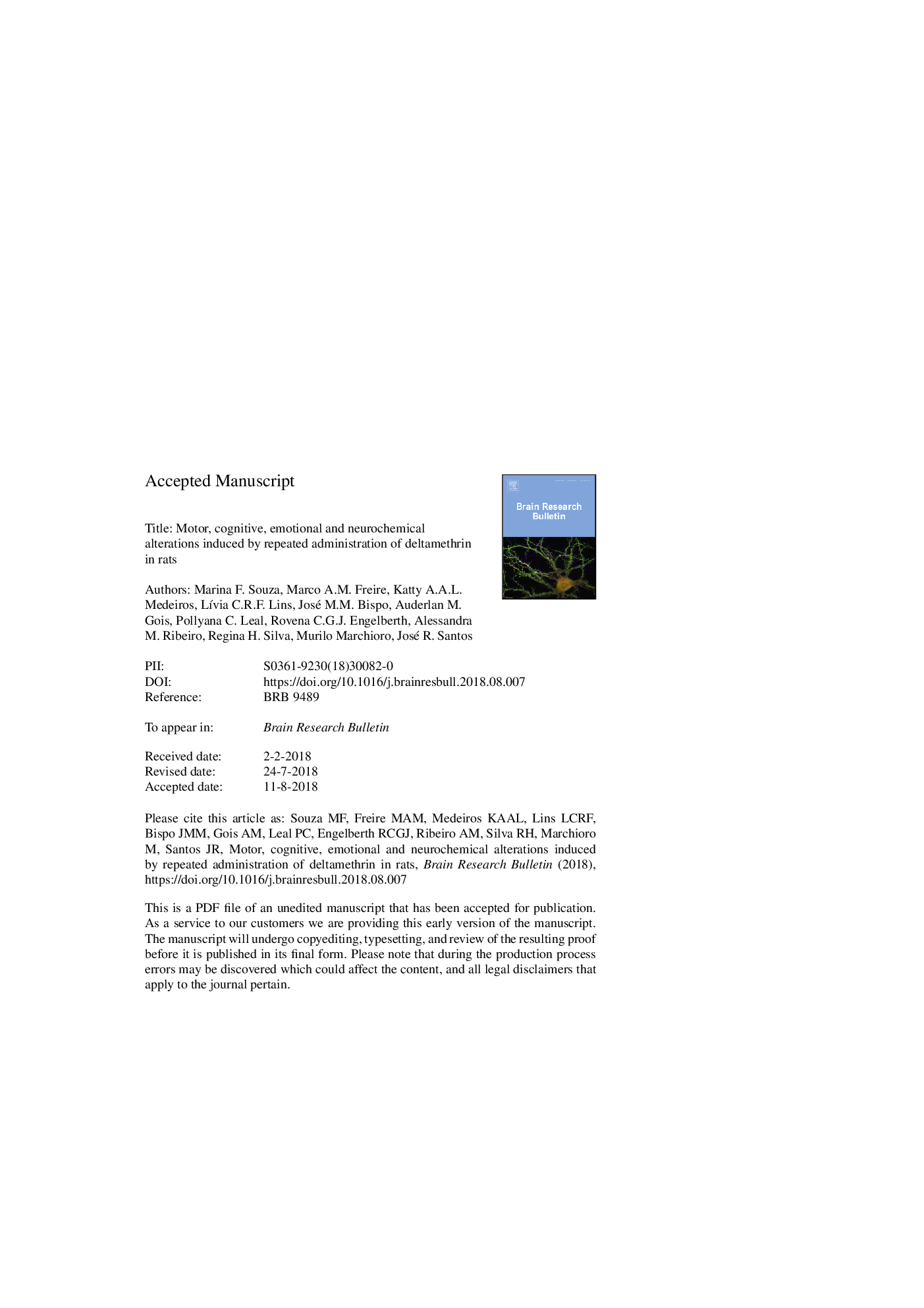| Article ID | Journal | Published Year | Pages | File Type |
|---|---|---|---|---|
| 8838810 | Brain Research Bulletin | 2018 | 30 Pages |
Abstract
Parkinson's disease (PD) is a neurodegenerative disease related to the dopaminergic system. The etiology is not fully understood, but it is known that PD is a multifactorial disease that involves genetic and environmental factors, including pesticides. One of these, Deltamethrin (DM), has been widely used for vector control in crops, farming, veterinary medicine and domestic pest control. The purpose of the present study was to investigate the effect of DM repeated administration on motor, cognitive and emotional behavior and dopaminergic parameters. Male Wistar rats received 3 intranasal (i.n.) injections of 100âμL (50âμL/nostril) of DM 0.5âμg/μl or Vehicle (saline solution 0.9%), one injection per week. We observed that DM caused memory (novel object recognition task) and emotion (contextual conditioned fear) alterations accompanied by reduction of TH immunoreactivity in the substantia nigra pars compacta (SNpc) and ventral tegmental area (VTA), and increase of TH immunoreactivity in the dorsal striatum. Motor alterations (catalepsy and open field task) were not observed throughout treatment. These findings suggest a possible early disruption of the dopaminergic pathway caused by repeated DM exposure, similar to that observed in early stages of PD.
Related Topics
Life Sciences
Neuroscience
Cellular and Molecular Neuroscience
Authors
Marina F. Souza, Marco A.M. Freire, Katty A.A.L. Medeiros, LÃvia C.R.F. Lins, José M.M. Bispo, Auderlan M. Gois, Pollyana C. Leal, Rovena C.G.J. Engelberth, Alessandra M. Ribeiro, Regina H. Silva, Murilo Marchioro, José R. Santos,
